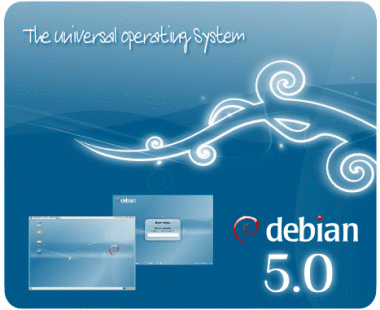Debian
businessWeb Page: http://wiki.debian.org/SummerOfCode2009
Mailing List: debian-devel@lists.debian.org

The Debian Project is an association of individuals who have made common cause to create a free operating system: a complete set of programs and utilities that make your computer run, plus applications to run on it. This operating system that we have created is called Debian GNU/Linux because of its basic building blocks: the Linux Kernel and the GNU OS tools. We simply call it Debian for short. Debian and its derivatives together make up the most popular Linux family in the world, used on systems all the way up from tiny embedded devices to world-class supercomputers.
Projects
- Automatic debug packages creation and handling This proposal aims at providing debug binary packages for the packages in the Debian archive in an automatic manner, moving them away from the official Debian archive to an special one. This has the benefits of providing thousands of debug packages without any work needed from the developers, for all the architectures, without bloating the archive.
- Control Files Parsing/Editing Library/Qt4-Debconf Qt4-Perl bindings This project proposes a common library for parsing and manipulating Debian Control files, including control, copyright and changelog. Main ideas include validating and parsing of these files, with both Strict and Quirks modes for the parser. The second idea is a new frontend for Debconf using Qt4 (for which Perl bindings will be written). Student: Jonathan Yu, Mentor: Dominique Dumont
- Debbugs web UI: amancay strikes back The Amancay[0][1] project aims to be a new read/write web frontend to Debian’s BTS; allowing DDs and contributors to easily interact with bugs via an intuitive yet powerful interface, enabling new workflows and creating new contribution opportunities like triaging while upholding reporting quality. 0 - http://wiki.debian.org/SummerOfCode2007/DebbugsWebUI 1 - http://alioth.debian.org/projects/bts-webui/
- Debian-Installer Support for GNU/kFreeBSD GNU/kFreeBSD is currently using a hacked version of the FreeBSD installer combined with crosshurd as its own installer. While this works more or less correctly for standard installations (read: the exact same installation as in the documentation), it does not allow any changes in the installation process except the hard disk partitioning. This project is about porting debian-installer on GNU/kFreeBSD, and to a bigger extent, make debian-installer less Linux dependant.
- Distribution-independent update-manager The project would involve taking the distribution-(Ubuntu-)specific update-manager code, analyzing it, and creating a package with just its core functionality, decoupling the distribution-specific parts and thus making the core code extensible by distribution-specific add-ons. This in turn would remove the need of porting update-manager to Debian with every upstream release. An additional optional goal would be replacing the synaptics-backend with a python-apt based one.
- MTD Embedded Onboard flash Partitioning and Installation Many embedded devices have onboard flash [MTD] as persistent storage. Example devices: Kurobox Pro NAS (256 MB) [KURO], the Neo Freerunner (256 MB) [FR], the Sheeva Plug (512 MB) [SHEEVA], and the OLPC (1024 MB). For a sane Debian installation maybe 512 MB is small, still MTD flash is popular and capacity increases. Support for MTD partition/installation would make Debian even more interesting to a wide range of of devices. I propose that UBI [UBI] support is added to partman.
- On-demand Cloud Computing with Amazon EC2 and Eucalyptus Integration In many academic fields, as well as commercial industries, people use clusters to distribute tasks among multiple machines. Many times this is done by packaging a whole operating system disk image and running it in a VM. This project intends to make it easier for Debian to distribute prepared disk images like they distribute CD images now, for the users to recreate or customize these templates with Debian packages and for administrators to host such clusters with Debian.